KAZAKHSTAN: Updates Rules for the National Catalogue of Goods
The Ministry of Trade and Integration of the Republic of Kazakhstan has issued a new order (No. 284-NҚ, dated October 2, 2025) introducing significant amendments to the rules governing the National Catalogue of Goods and the registration of goods within it. The order, registered by the Ministry of Justice on October 3, 2025 (No. 37044), updates and restates in full the previous regulations approved by Order No. 232-NҚ of July 31, 2025. The new version will enter into force on January 1, 2026.















